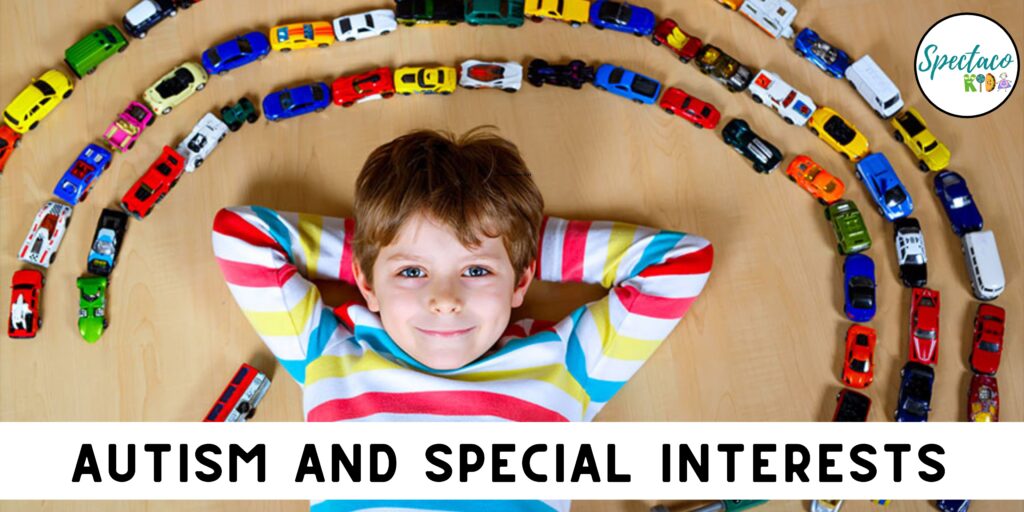What Are Special Interests?
Special interests are commonly found in over 75 percent of people on the spectrum. Some interests begin in childhood, whilst others develop overtime. These interests can be narrow and quite focused on certain topics (wildlife, maps, music), subjects (math, science etc.), and hobbies (games etc.) and can get a bit intense at times.
Why Do Autistic People Develop Special Interests?
Two major core aspects of autism are repetitive behaviors and restricted interests. Since autistic individuals are less readily able to socialize, they tend to they seek out other interests as a diversion.
Are Special Interests Harmful?
Special interests usually revolve around how things work or on a larger scale – how society functions. Therefore, individuals on the spectrum, have strong and almost obsessive levels of focus on things that capture their interest.
How Can Special Interests Be Helpful?
Previously, experts used to consider them as an escape, something autistic people did to manage negative emotions such as anxiety. But increasingly, studies reveal that these interests are intrinsically rewarding. In addition to occasionally launching a career, they reliably build self-confidence and help people cope with emotions. Studies also suggest they can help autistic children gain social skills and learn.
What Are Some Special Interests That Can Help Your Child?
- Woodwork – working step by step makes it an easy routine-based activity
- Photography – a hobby that can become a business, capturing beautiful moments
- Coins – collecting coins to revisit history and learn to value craftsmanship
- Music – lightens the mood with singing, dancing, and listening to fine instruments
- Dismantling Things – helps to develop building skills and learn how things function
- Cooking – a great activity to do in groups, develop friendships and eat well
- Art – reduces stress, develops imagination, and boosts self-esteems
- Books – improve reading ability and enhance creativity in children
What To Do If Things Start Getting Difficult?
If certain interests or behavioral patterns are hurting your child, it is best to intervene and try to change the way they are doing things slowly, rather than abruptly taking charge. Some ways to do this could be:
- Rewarding the child to deter them from doing something. This sends across the message that they will benefit if they stay away from something that you and eventually, they too will come to understand is harmful for them
- You can also consult a therapist to find the best solution to solving the problem at hand
- Additionally, if the child is using these interests as a method to evade negative emotions and thoughts, you can use different sensory techniques to help train them to regain control.
Will These Ever End?
Whether special interests appear suddenly or develop overtime, it is certain that they continue to evolve. Whilst some maintain one interest over a certain period, others may develop new ones, thus, letting go of previous interests.
Overall, How Have Special Interests Impacted People On the Spectrum?
- Readily Converse
- Feel Calm
- Provide Entertainment
- Enforce Positivity
Readily Converse
People on the spectrum often find it difficult to socially engage, let alone begin the conversation! However, special interests equip them with expansive knowledge, making it easier to have something to talk about and ultimately, be admired for.
Calm in a chaotic world.
Feel Calm
Focusing on something that captures their attention helps them to feel calmer, encouraging them to participate in activities that support their routine, like putting objects into a line for example.
Provide Entertainment
Since special interests are particularly appealing to people on the spectrum, they become a source of fun and enjoyment- doing what they love!
Enforce Positivity
Special interests also serve as an outlet, for people and children to escape the unpredictable and stressful environment around them, thus, keeping them busy and free from negative emotions.
How Are Special Interests Being Facilitated Today?
Today, special interests are being promoted at multiple levels, to better accommodate autistic people. For example:
- Teachers and clinicians are encouraging them
- Educators are incorporating special interests into the curriculum
- Psychologists are exploring how to mitigate the problematic behaviors associated with interests, without eradicating the interest entirely.
- Neuroscientists are trying to better understand the effects of special interests on the brain and the nervous system.
How Can We Support Special Interests At Home?
These interests can lead to professional development, and act as a safe space in times of stress. Whilst Nurturing these interests can be challenging, it is certainly beneficial to those in need. You can start by:
- Talking about it together with your family
- Trying not to get them to be normal or expect them to behave like everyone else
- Encouraging people around you to be encouraging and supportive
- Trying to put yourself in their place so you can empathize with them
- Seek help from a mental health professional
- Taking interest in what your child likes and doing that activity together
- Buy things related to their interest, to expand the resources available to them
- Using Digital devices for educational and communication- related activities
- Exchange information about their interest to add insight
- Be Patient
On the contrary, special interests in autistic children can be very useful, given that these children are supported positively by those around them, making them feel more comfortable in their environment.
For more information, follow us on Instagram or visit our website!

